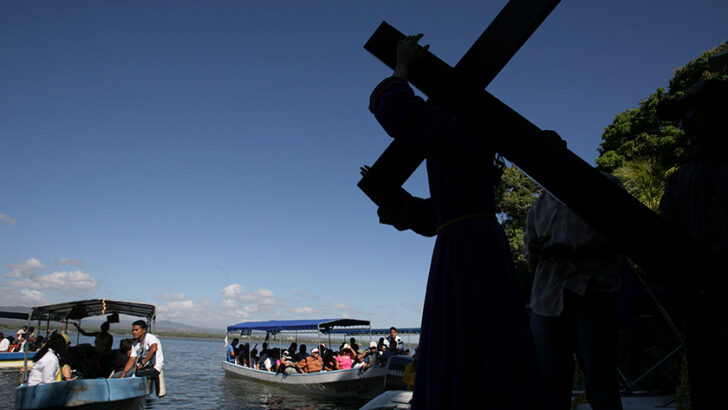For some years now, it has been fashionable for Catholics to declare that we’re not giving up anything for Lent but instead are doing something positive. This false dichotomy makes sense within the modern, post-Christian worldview, which sometimes seems to view self-denial as the only modern equivalent to sin; but the words of Christ himself make it clear that the truth is more complex: “Whoever wishes to come after me must deny himself, take up his cross, and follow me. For whoever wishes to save his life will lose it, but whoever loses his life for my sake will find it” (Mt 16:24-25).
We admire sacrifice in the pursuit of worldly goals: furthering one’s career; rigorous training for athletic events; complex diets pursued for the sake of physical health. But self-denial for the sake of eternal life seems somehow… selfish. The only aspect of Christianity that the modern world seems willing to accept is service to others – so long as we don’t mention that we’re serving Christ in them.
Yet that, of course, is what we are doing. And a fundamental difference – perhaps the fundamental difference – between the Christian worldview and the literalist, materialist mindset that dominates even the thoughts of most Christians today is that Christians view everything in this world, including our fellow human beings, as symbols of something beyond this life.
The Christian creed was described as the “symbol of faith”: Words spoken in this world reminded us of realities in the next. Christ told us that when we serve our fellow man, we serve Christ himself, and St Paul expounded at length on the Church as a symbol of Christ and marriage as a symbol of the relationship between Christ and his Church.
The Eucharist is explicitly a symbol, the Host broken in two to remind us of the human and divine natures of Jesus Christ, whose Body it is. We receive into ourselves not only his Body and Blood but his Soul and Divinity. And through communion, we enter not only into the life of Christ in this world and the next, but also into his death – or rather, we enter into his life by entering into his death. The symbol of the cross, stamped on every host, points beyond this life which is passing to that life which is eternal. Only through that cross, only by uniting ourselves to Christ’s death by dying to self, can we enter into the fullness of life in this world and the next.
Here in this life, we know only half of the story: We grasp only our half of the symbol. We can take it literally, as something irreparably broken, and mourn our loss and refuse to move forward. Or we can take it for what it truly is: A sign of something beyond ourselves, beyond this world, one half of all that we were meant to be. When we view the world that way, we come to understand what it means to lose our life in order to save it and why denying ourselves and taking up our cross must be the starting point for any good we wish to do.
Scott P Richert is publisher for OSV.


 An actor dramatises the Stations of the Cross as penitents travel in boats along Cocibolca Lake in Granada, Nicaragua.
An actor dramatises the Stations of the Cross as penitents travel in boats along Cocibolca Lake in Granada, Nicaragua. 